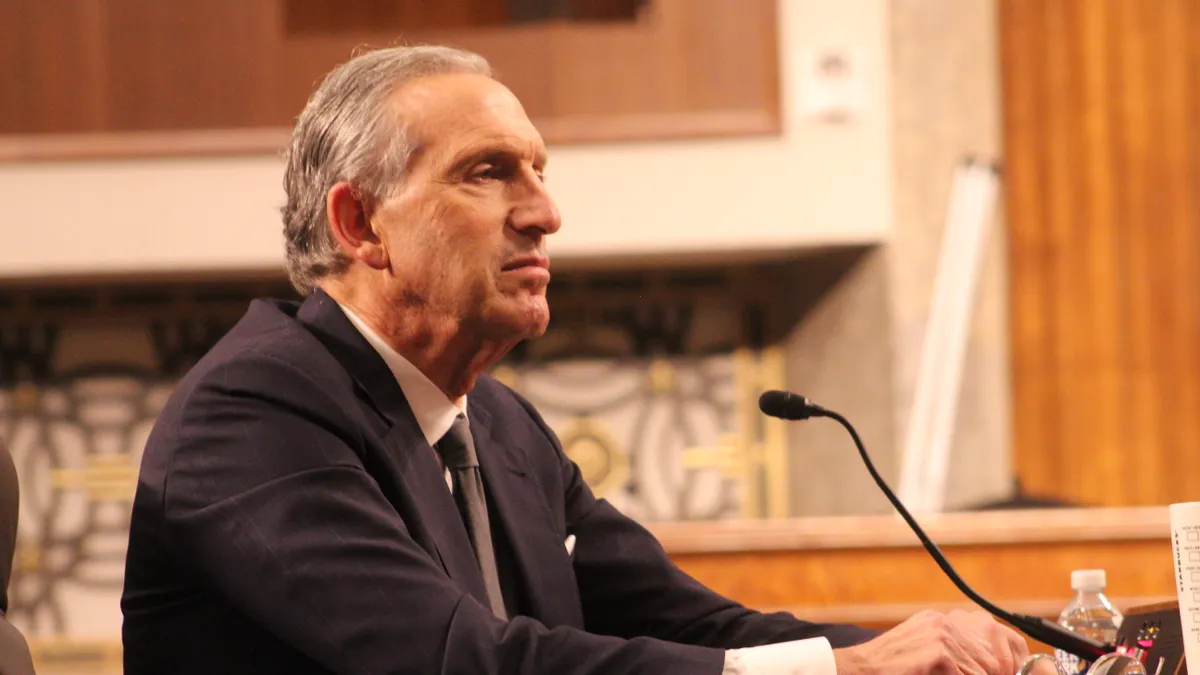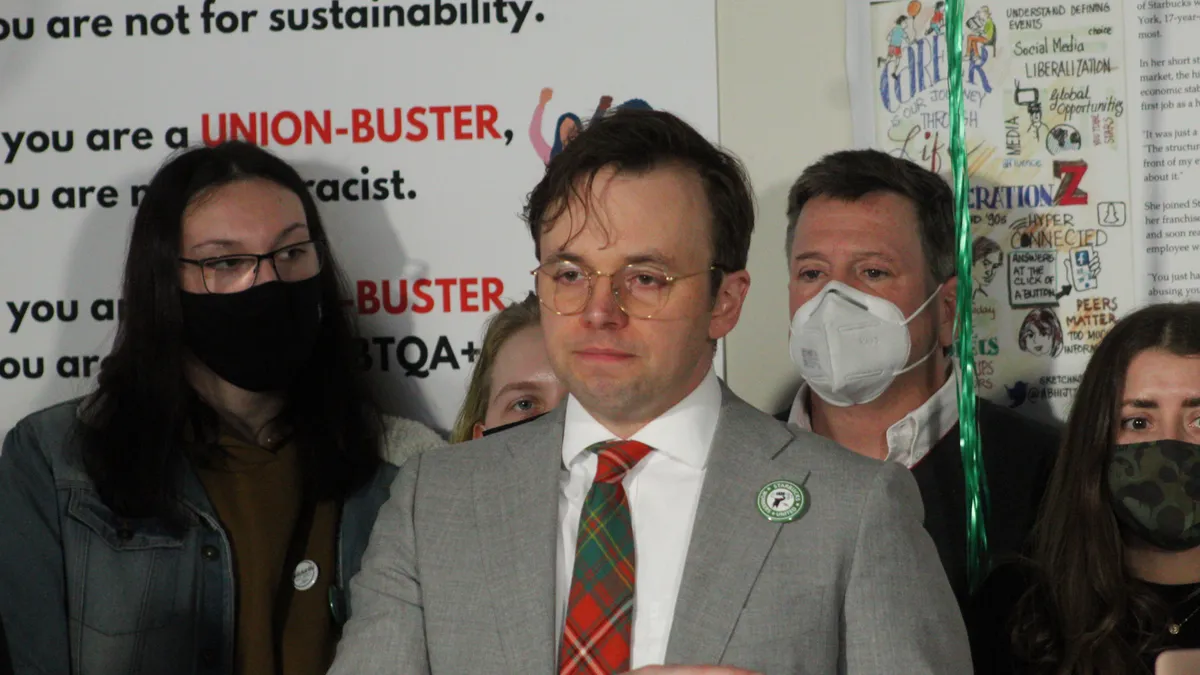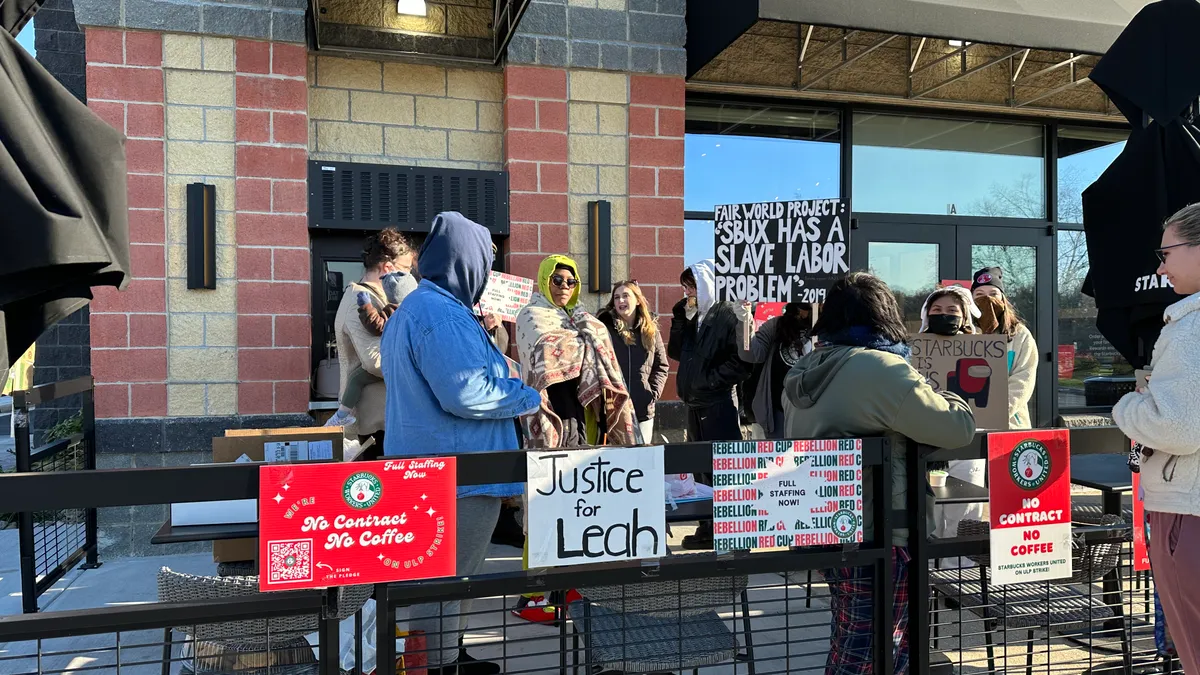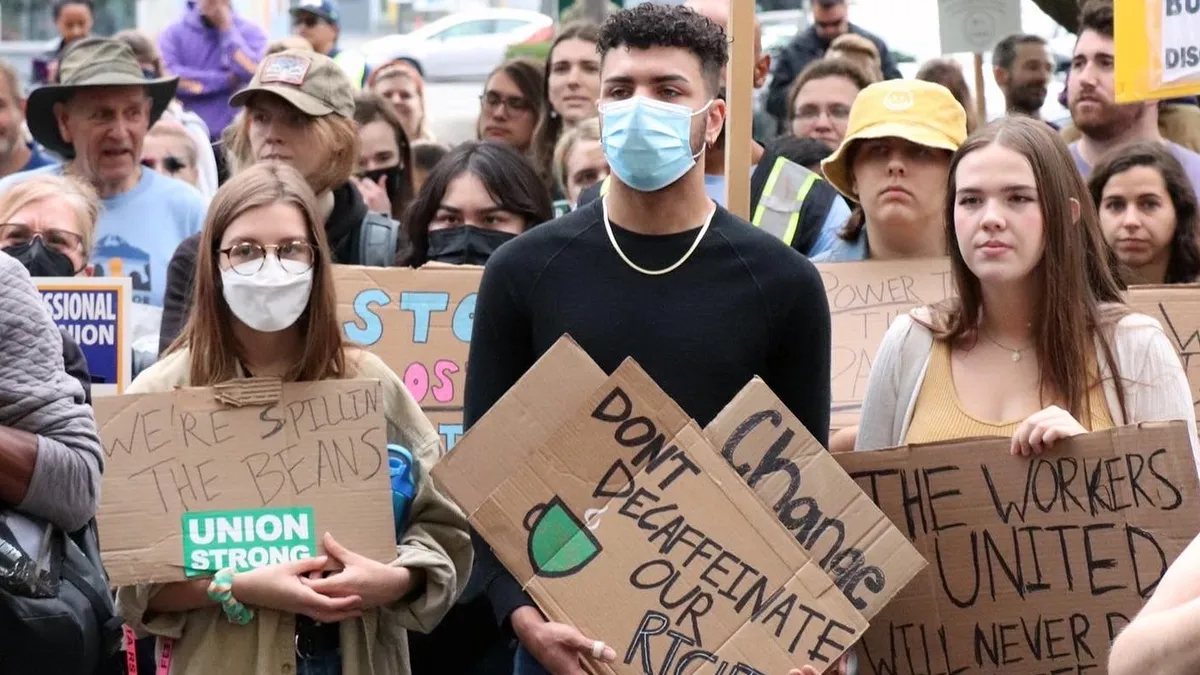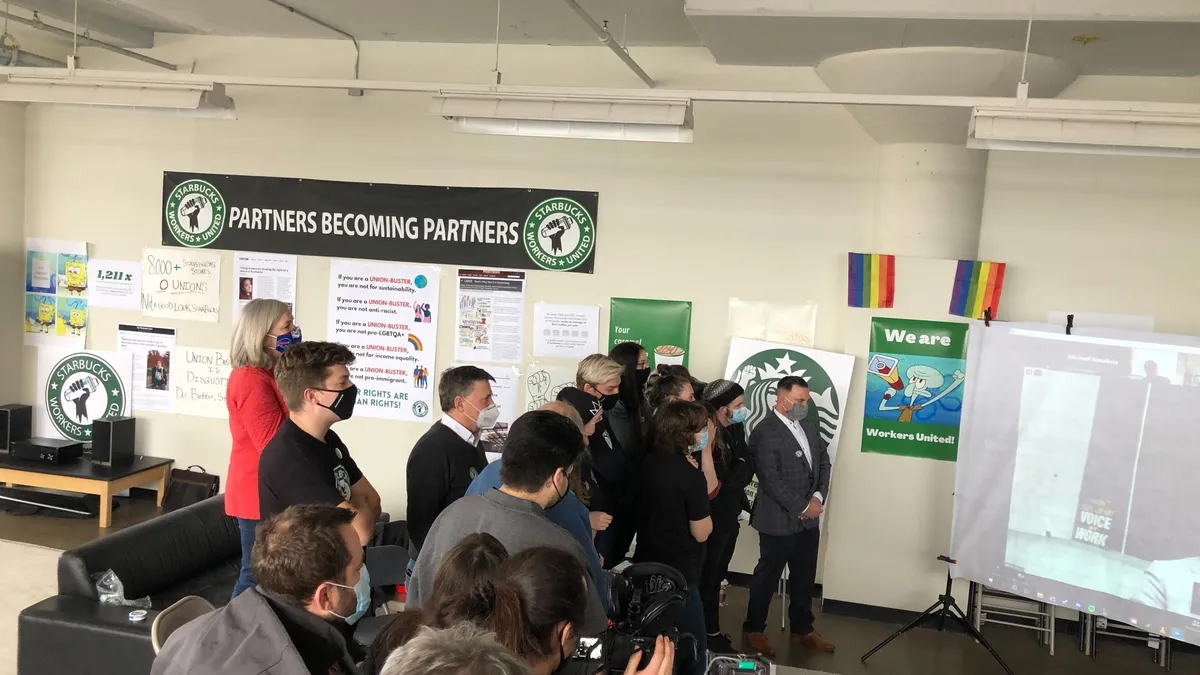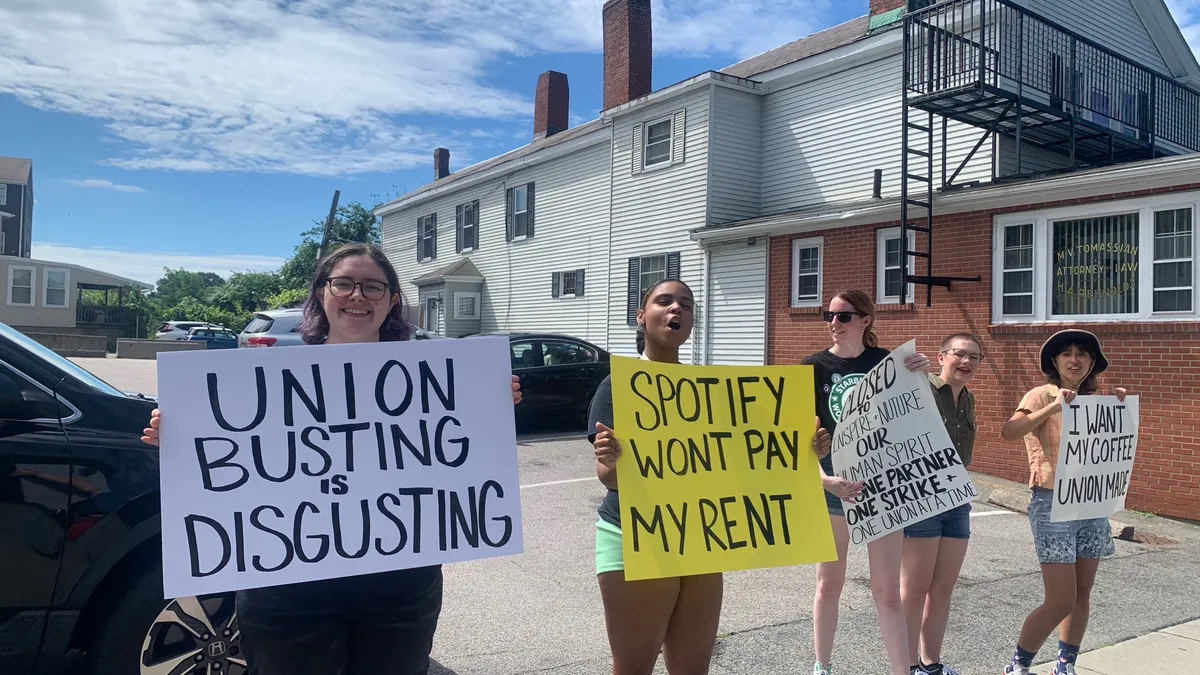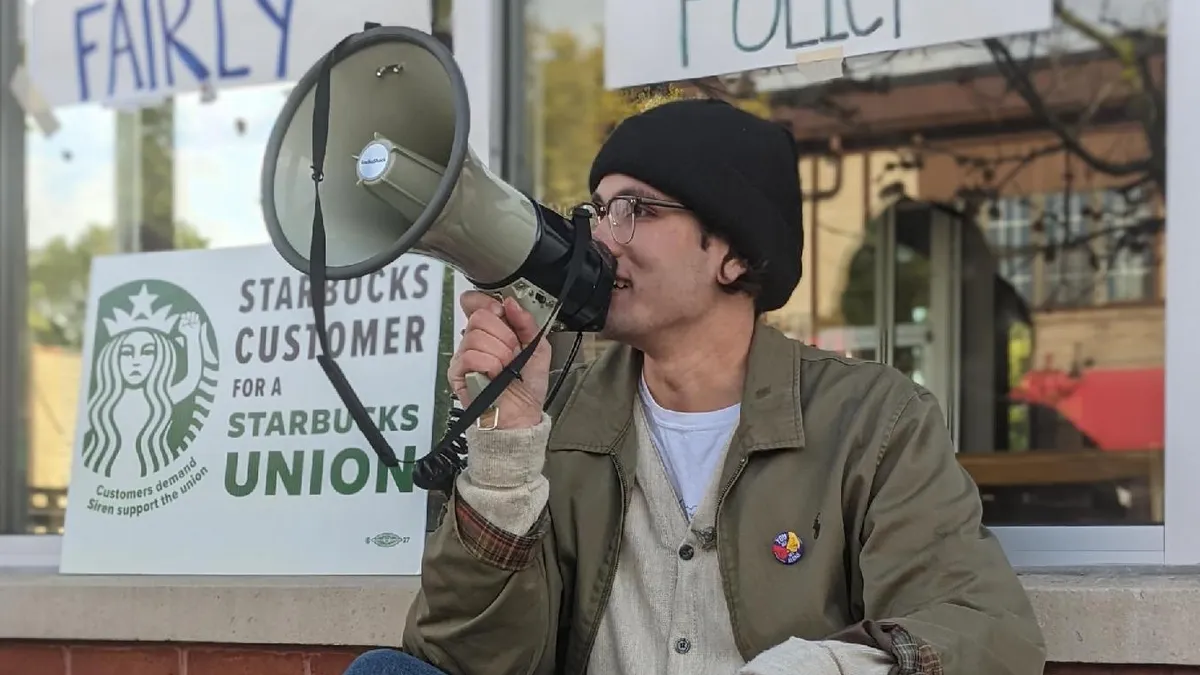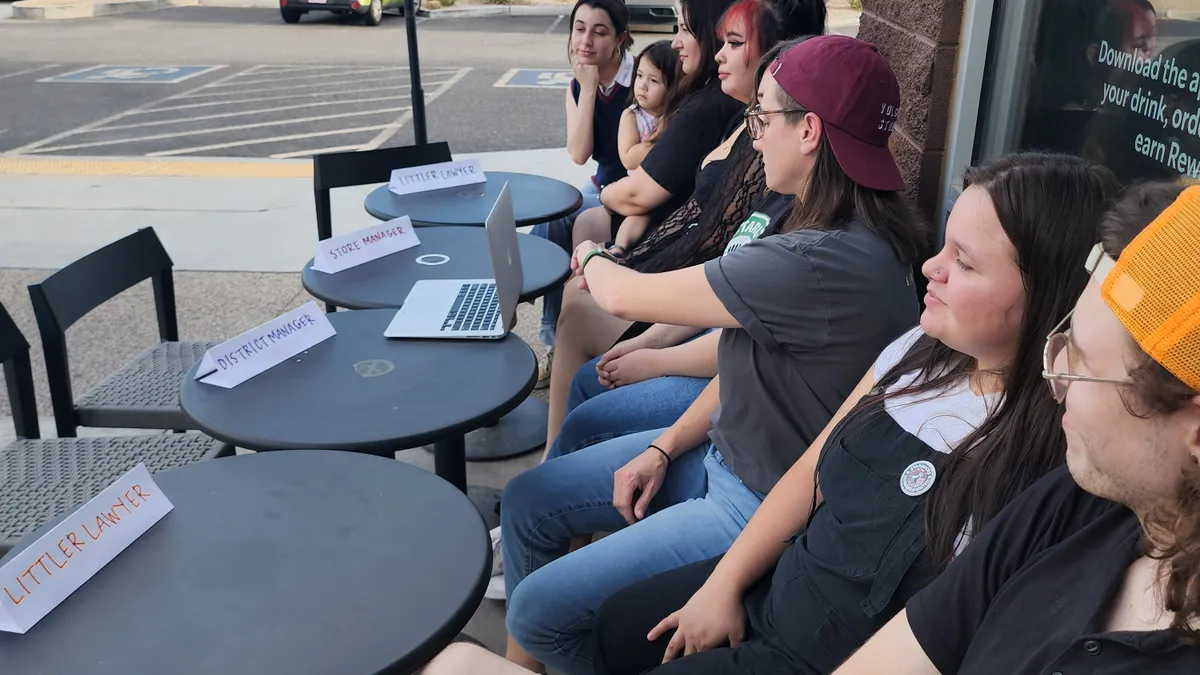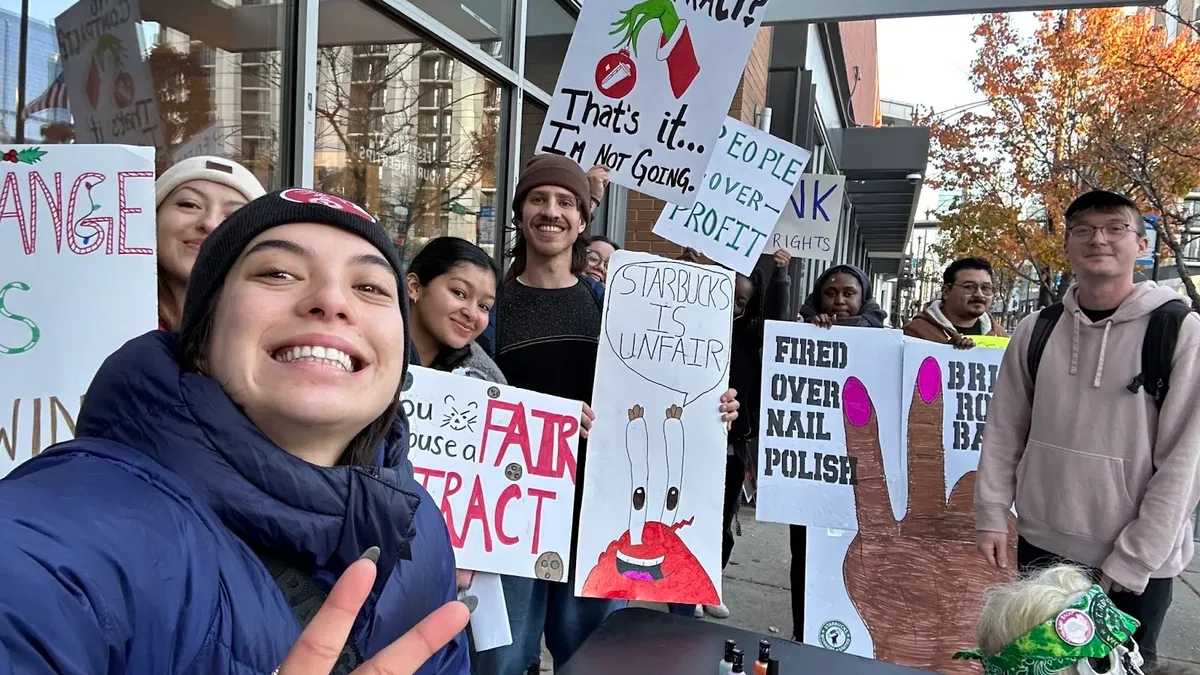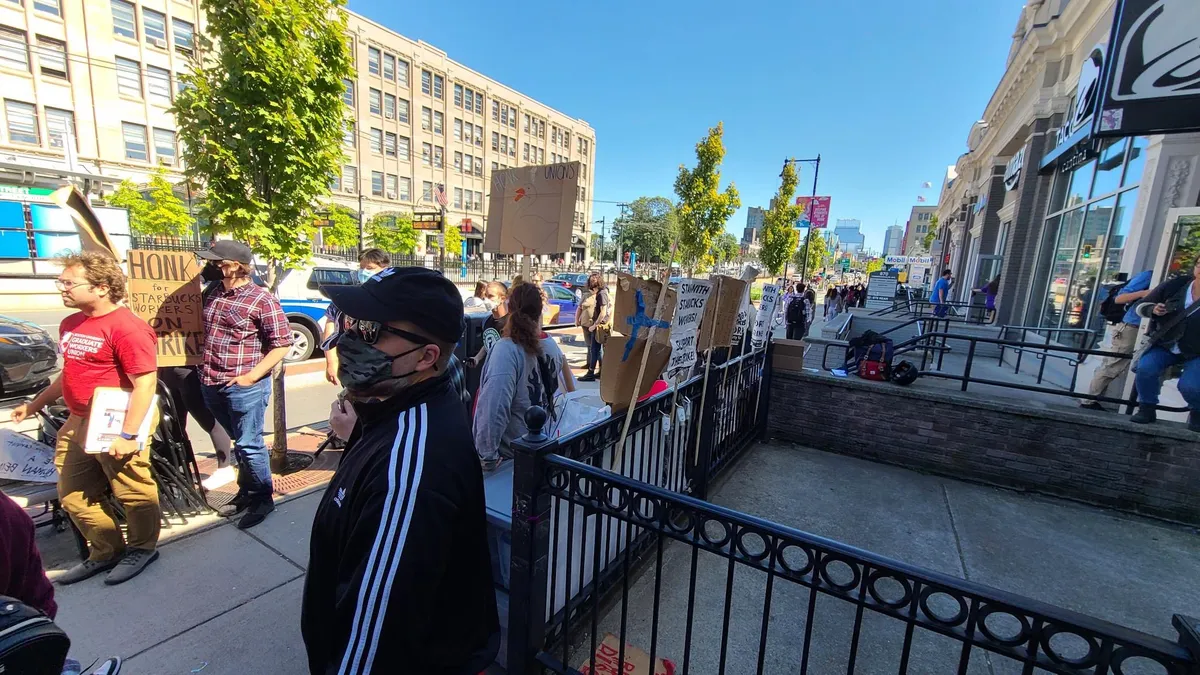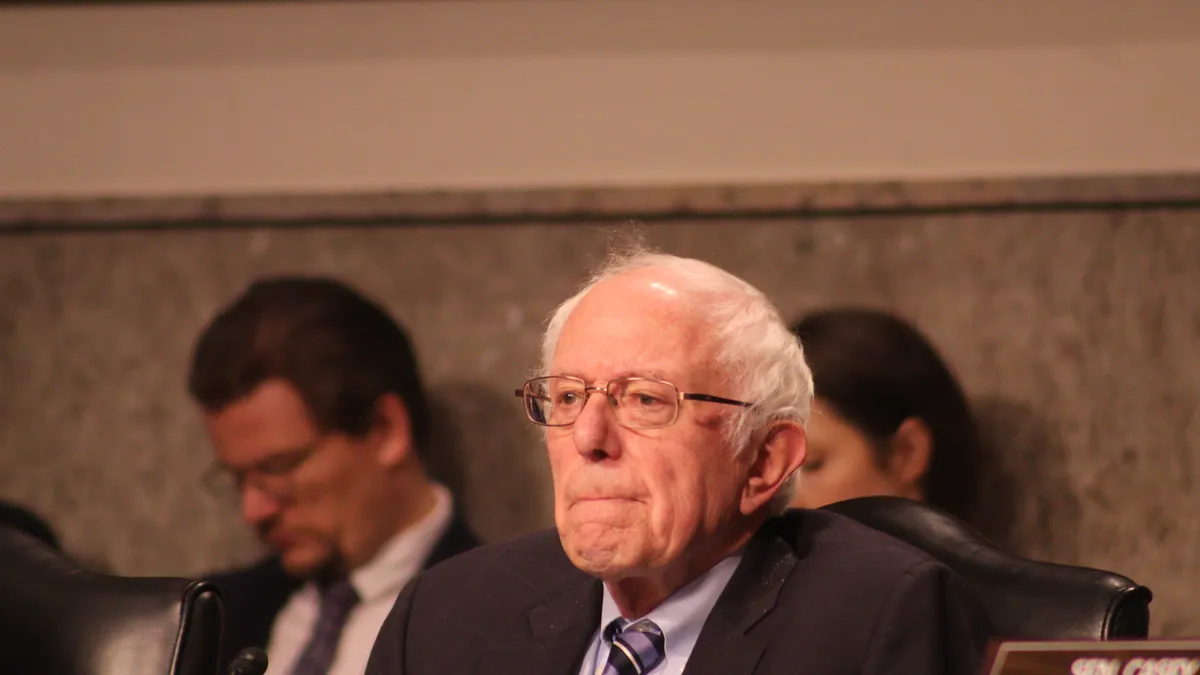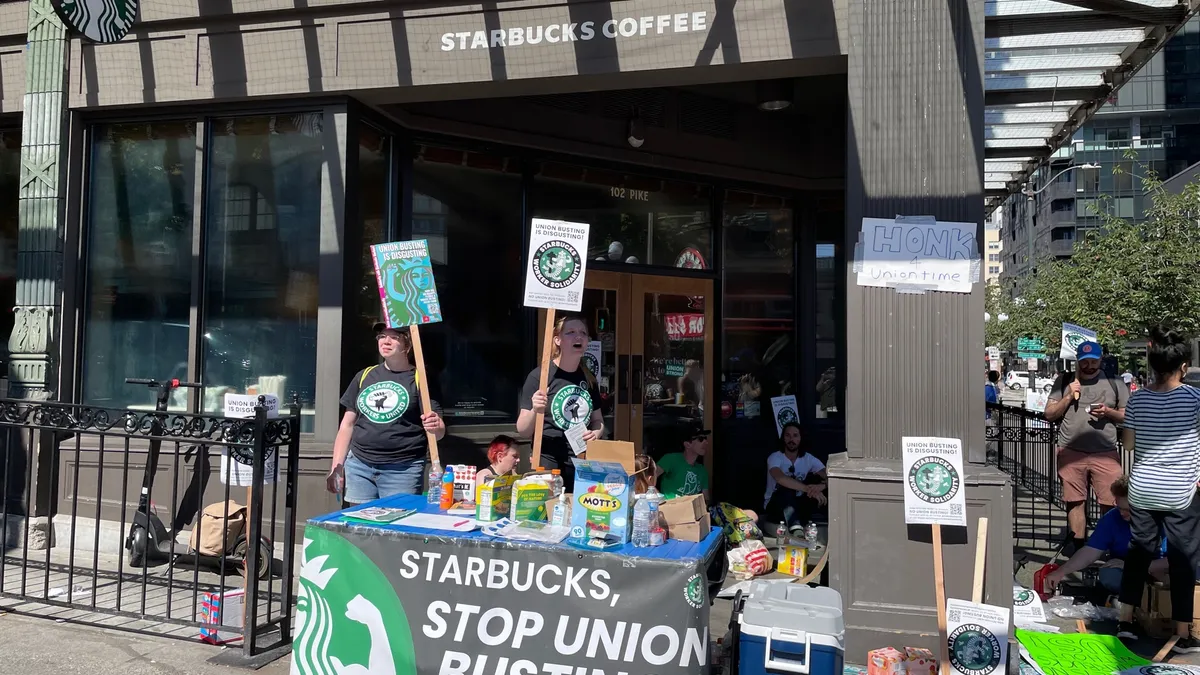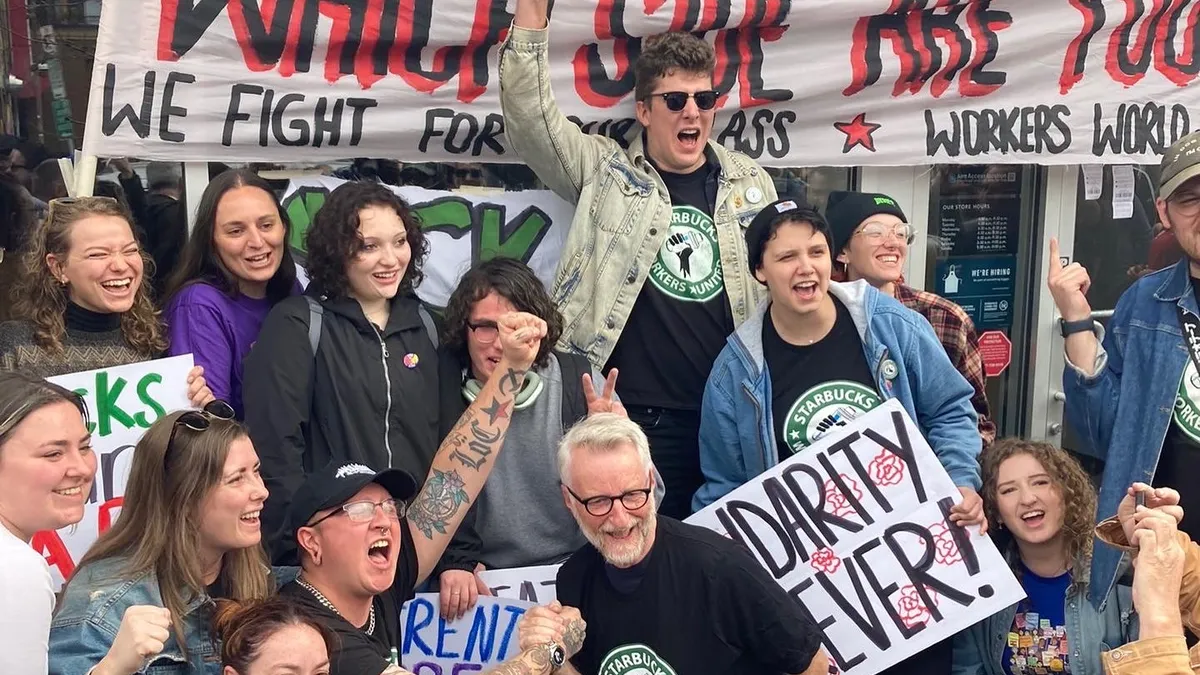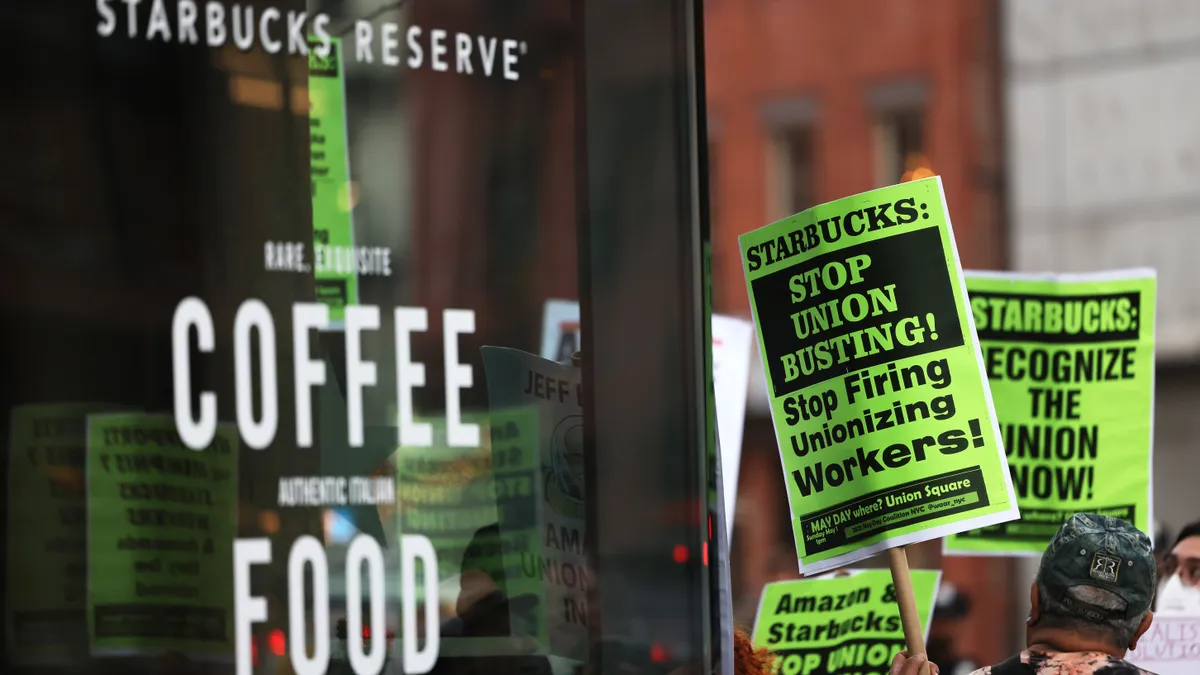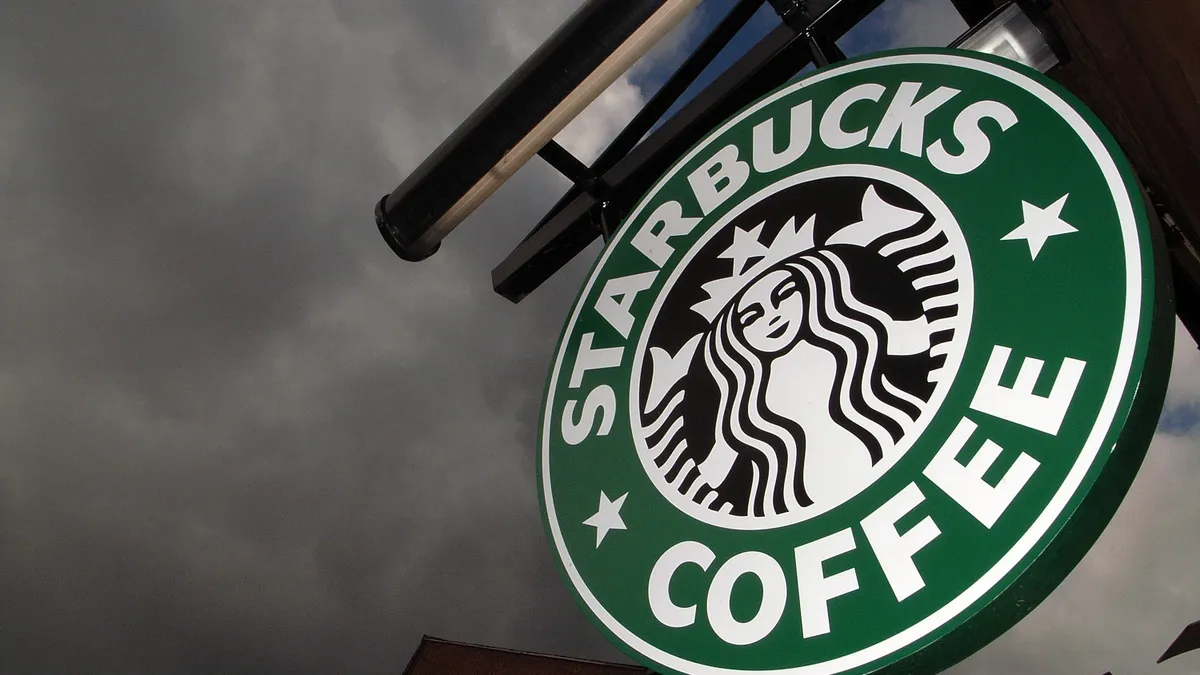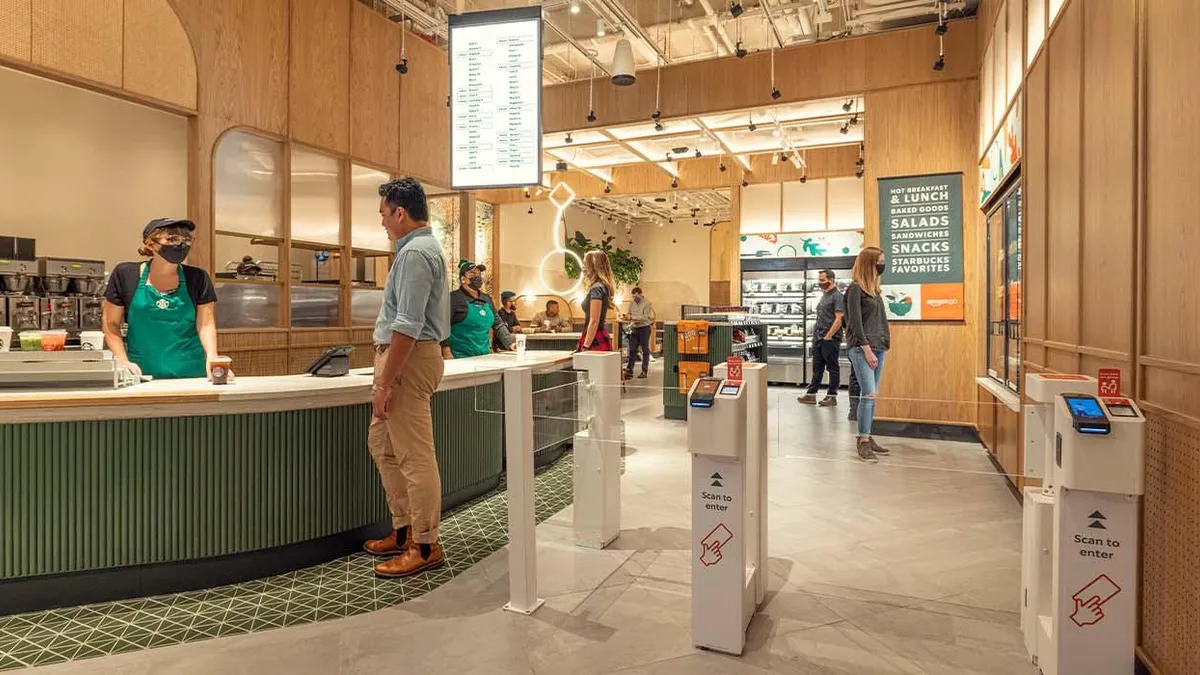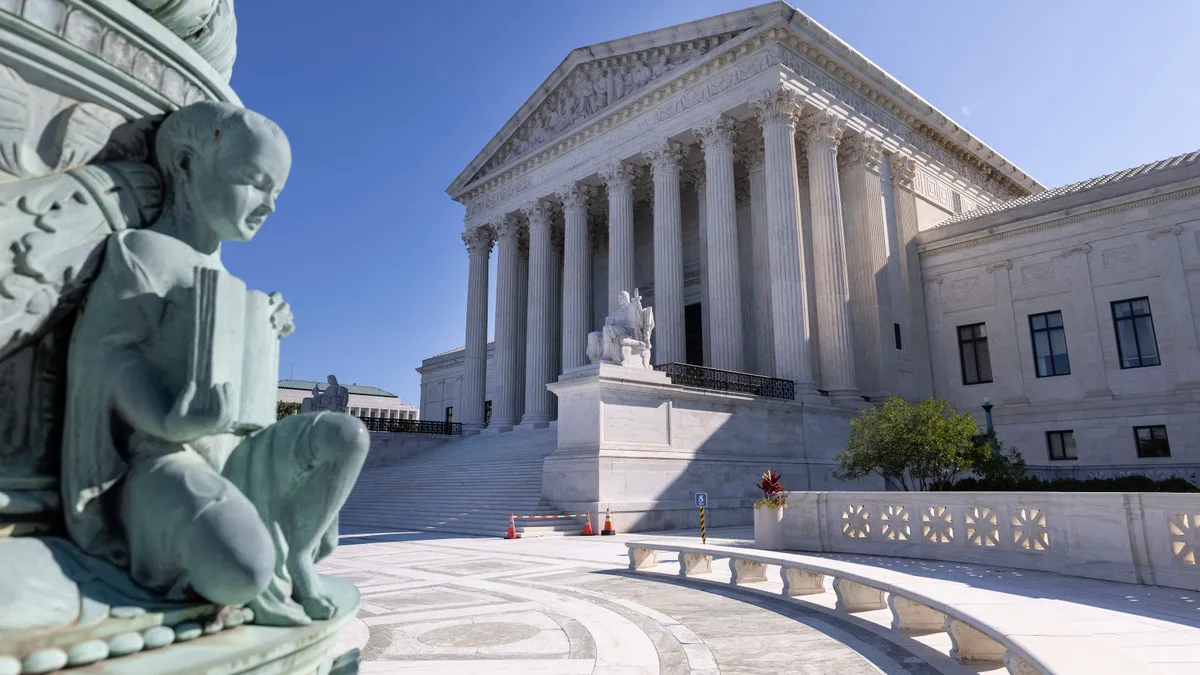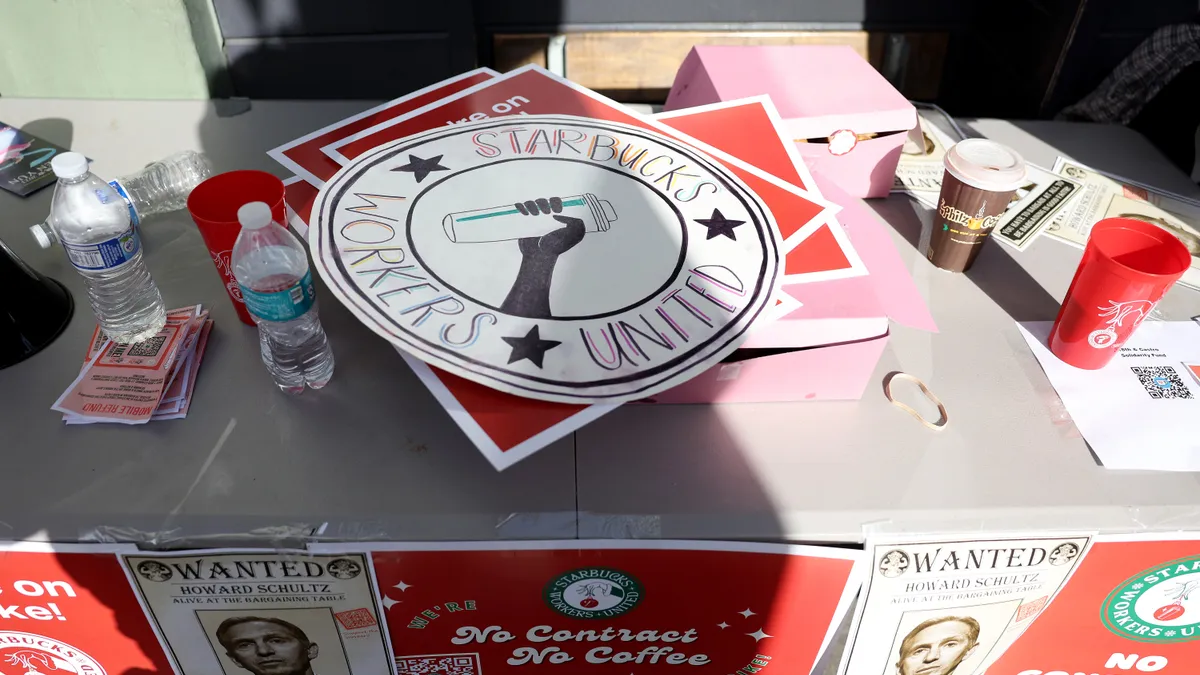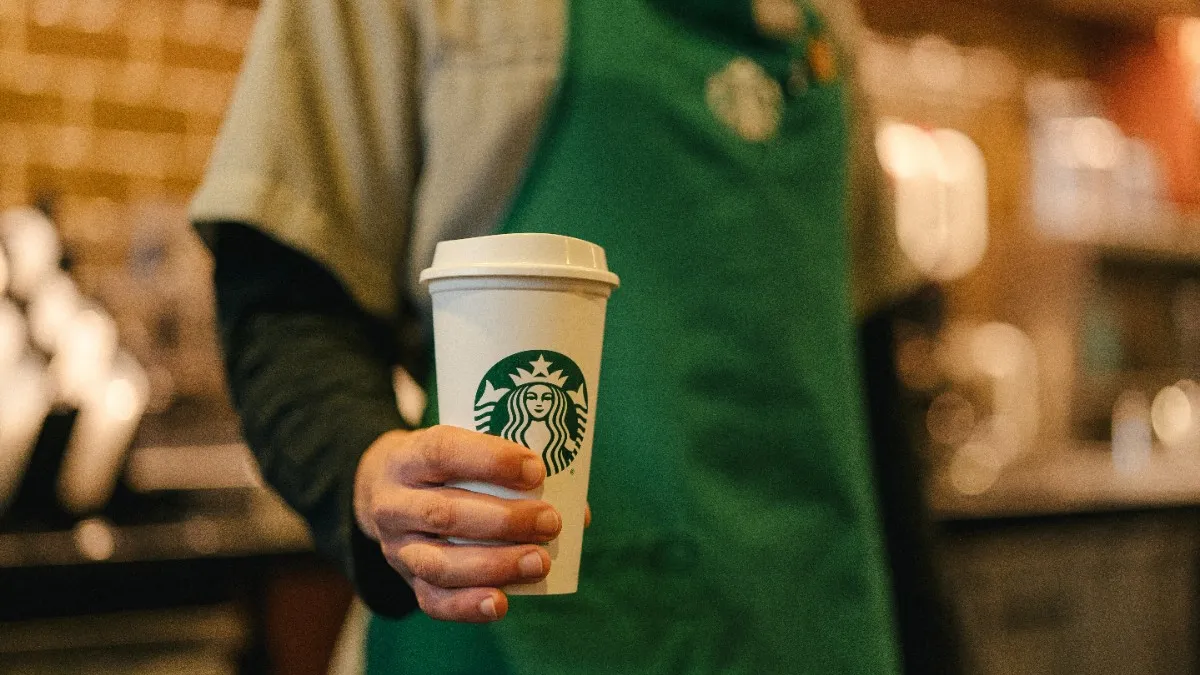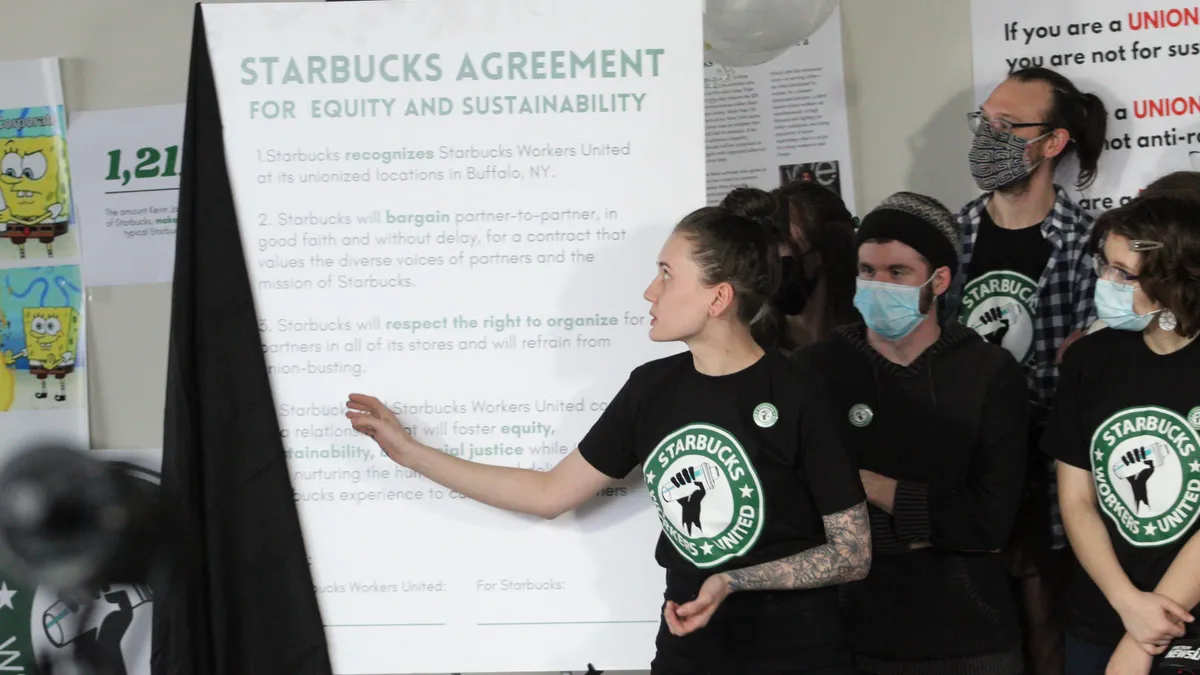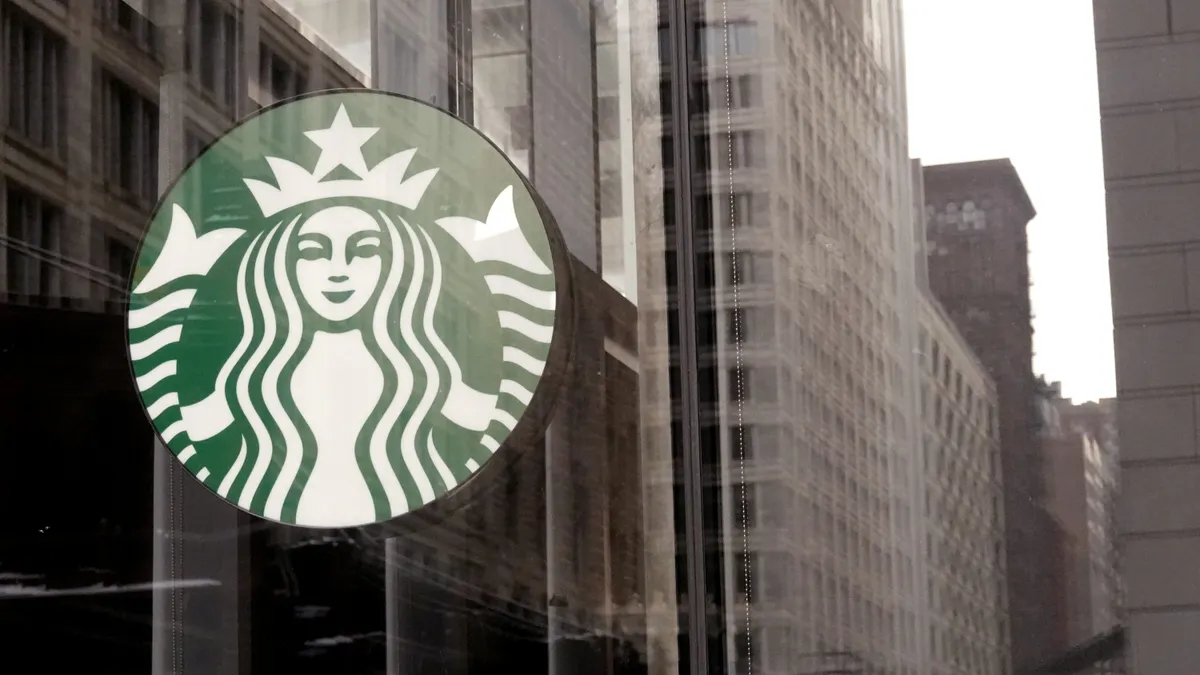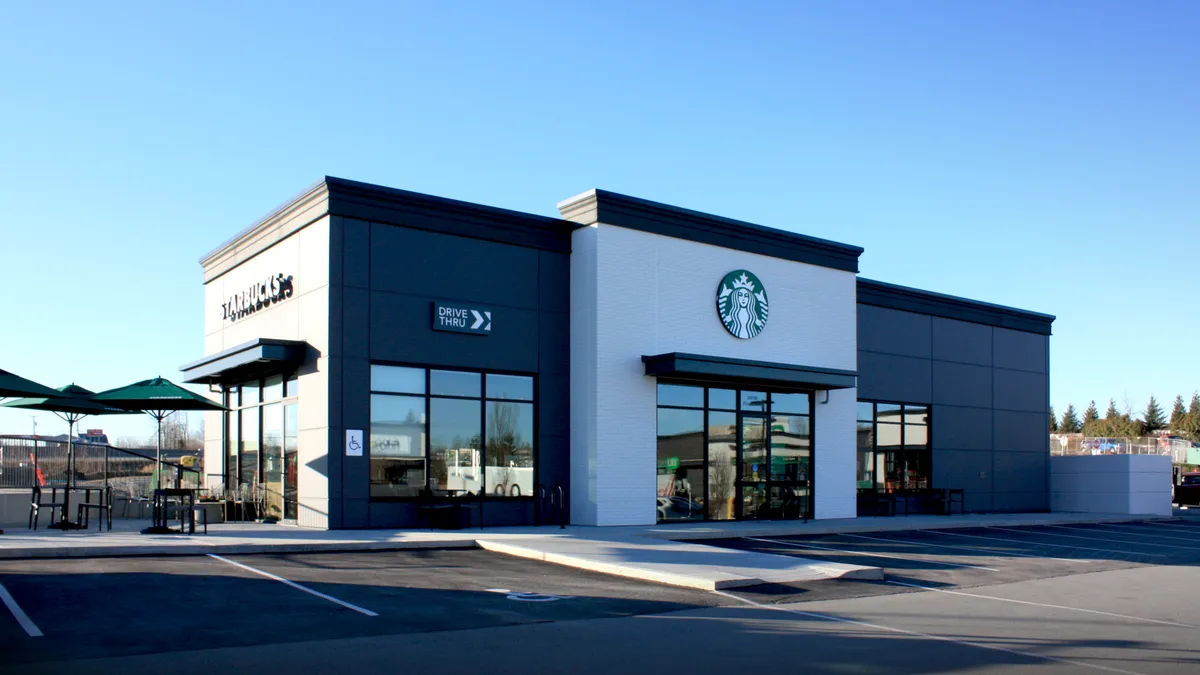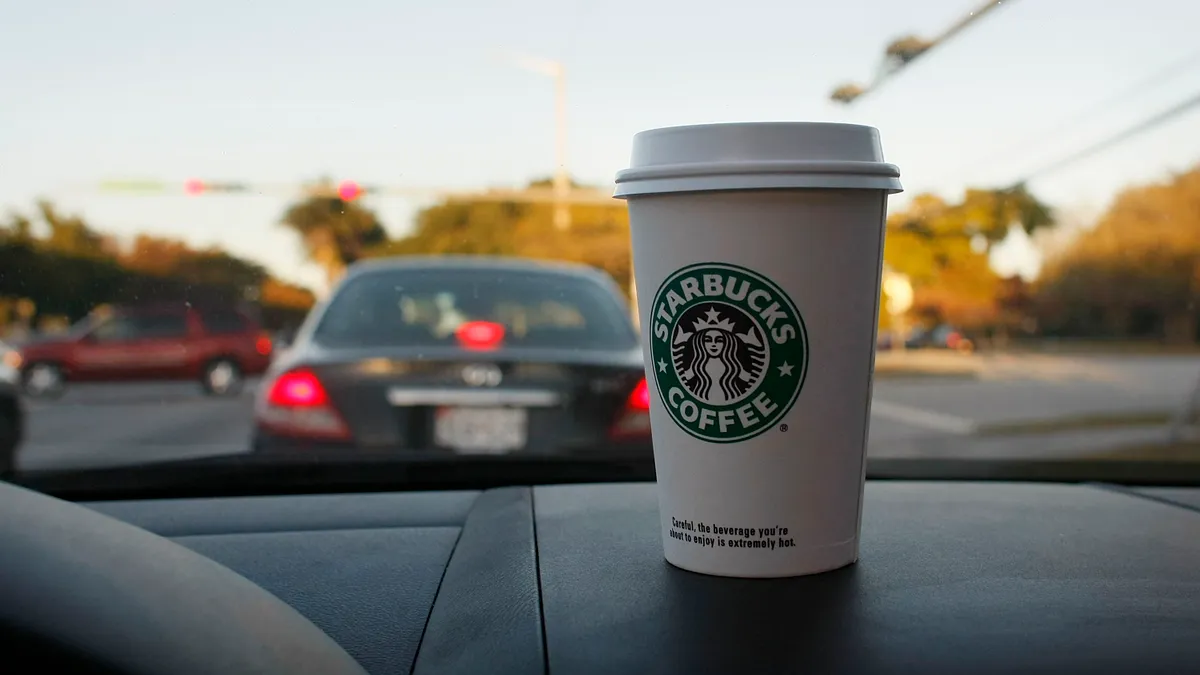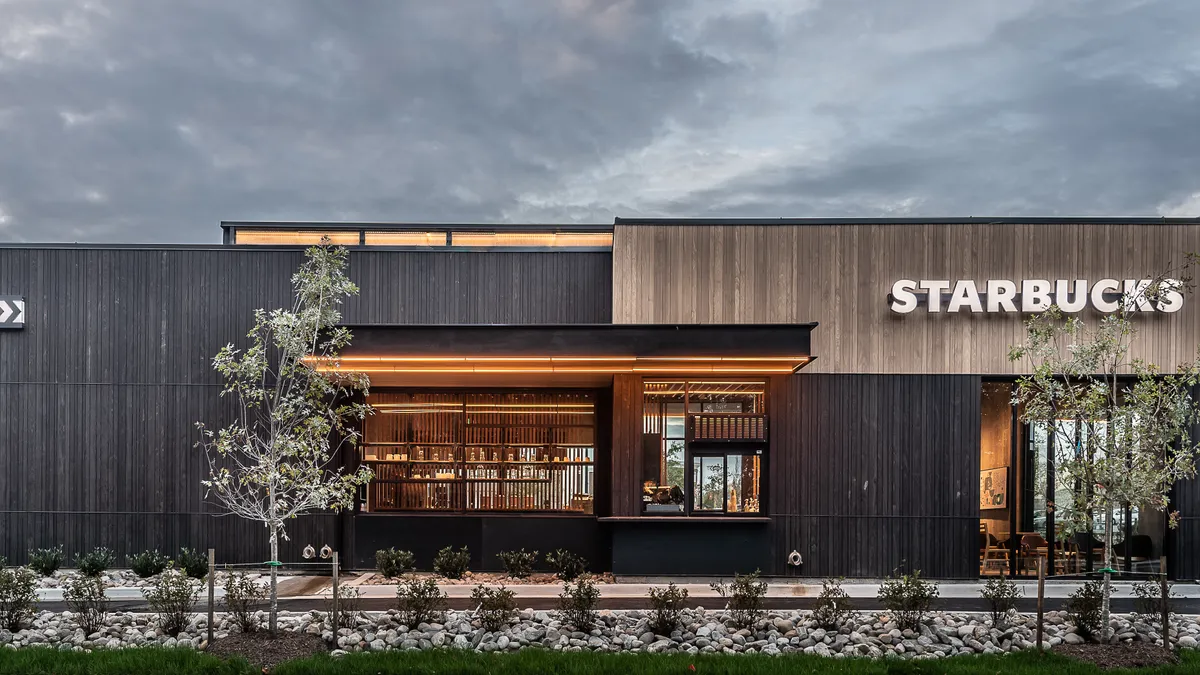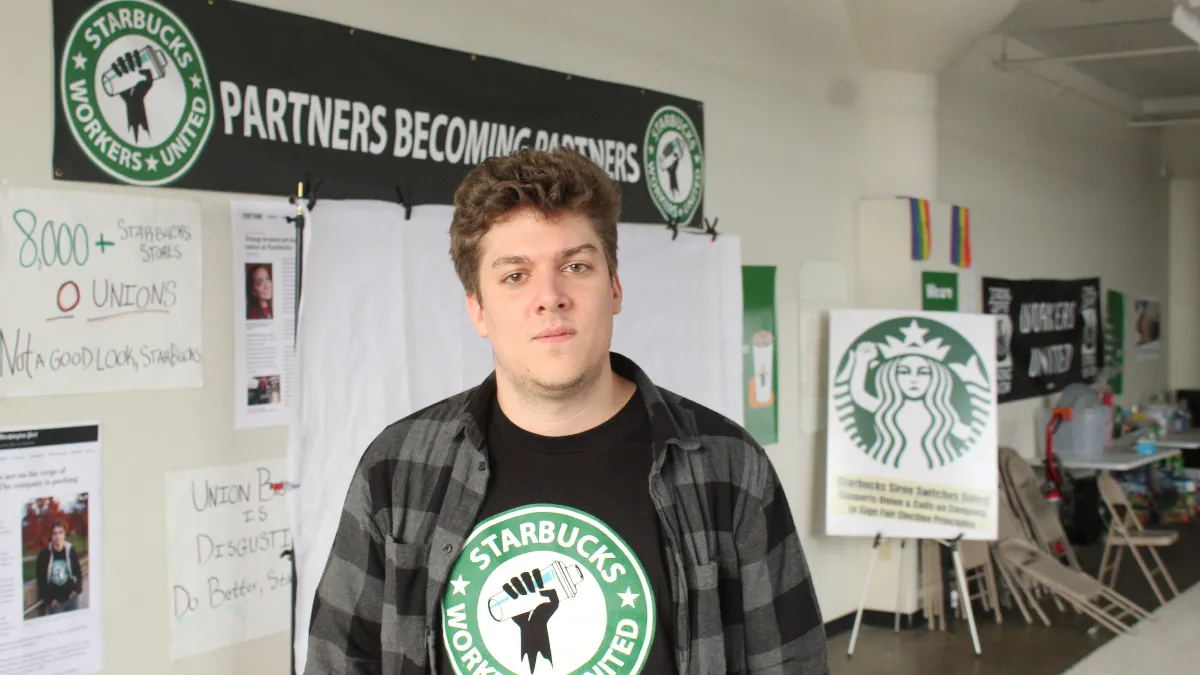Dive Brief:
- Former Starbucks CEO Howard Schultz appeared before the U.S. Senate Health, Education, Labor and Pensions committee hearing on Wednesday. Schultz came face to face with one of his political adversaries, Sen. Bernie Sanders (ID-Vt.), and dozens of Starbucks Workers United Members.
- Sanders grilled Schultz over the company’s handling of the Starbucks Workers United campaign, accusing him of placing the company above the law and personally directing Starbucks’ efforts to stop the union.
- Dozens of union members attended the hearing and two testified following Schultz. Schultz denied the company violated federal labor law in response to Sanders.
Dive Insight:
Sanders, in his opening statement, enumerated the allegations leveled against Starbucks by workers and by the National Labor Relations Board.
“There have been over 500 unfair labor practice charges lodged against the company, and judges have found that Starbucks broke the law 130 times across six states since workers began organizing in the fall of 2021,” Sanders said.
Schultz repeatedly denied that the company violated labor law and several times said he was unaware of specific instances when the company allegedly retaliated against unionizing employees.
Nabretta Hardin, a Starbucks worker in Memphis who was fired after organizing and later reinstated by court order, told Restaurant Dive that Schultz’s answers were evasive.
“He claimed he knew everything about this company. When they were asking questions, like 'Did you know this [alleged union busting] was happening in this place?’ He’s like, ‘No, I don't know anything.’” Hardin said. “He wouldn’t answer, really, any of the yes or no questions.”
Schultz touted the benefits and pay offered by the company.
“There’s literally no company in our competitive set of retail that offers higher valued benefits than Starbucks in the United States,” Schultz said.
But union members contested the value of the benefits, in addition to the company’s treatment of its employees. Testifying after Schultz, union workers Maggie Carter and Jaysin Saxton said the company’s benefits were inadequate and its health plan expensive and lacking coverage.
“The benefits are just too expensive for us to actually be able to use. So rather than forgo a paycheck [some baristas] just choose not to have health insurance,” Carter told the committee. Carter said she lost benefits because the company cut her hours, which she said was in retaliation for union organizing.
“The thing about the coverage is that it's offered in tiers, gold, silver and bronze,” Saxton said. “With every wage increase, they increase how much you have to pay into the health insurance. So that means more of your paycheck is coming out for subpar health insurance that doesn't cover everything.”
Republican senators were generally less confrontational, with Sen. Tommy Tuberville (R-AL) describing Schultz as “an idol for this country.” Ranking member Sen. William Cassidy (R-LA) said the title of the hearing was unfair to Starbucks, as the company has not exhausted all of its legal options in contesting unfair labor practice charges.
But Sen. Michael Braun (R-IN), said the company’s average hourly wage, about $17.50 an hour, was insufficient.
“Even 17 dollars an hour is not a living wage,” Braun said. “Any large corporation shouldn't necessarily be bragging about 15 to $20 wages. When you look at the typical structure of a large company, that should probably be $20.”
Schultz’s appearance before the committee caps several weeks of symbolic legal victories for Starbucks Workers United.
Starbucks Workers United’s run of symbolic victories
-
Feb. 8
Democratic senators invited Schultz to testify before the HELP committee
-
Feb. 15
After Starbucks informed the HELP committee on Feb. 14 that Schultz did not intend to appear, Sanders made clear his intent to get Schultz to testify.
-
Feb. 22
The New York City comptroller and a number of shareholders urged the company to undertake an independent assessment of its labor rights commitments.
-
March 1
A National Labor Relations administrative law Judge found Starbucks broke the law in dozens of instances in the Buffalo, New York area, though Starbucks vowed to appeal that ruling. Later that same day dozens of Starbucks corporate employees signed a letter to the company urging it to desist from its return-to-office policies and to agree to Starbucks Workers United’s fair election principles. Some of the corporate employees hinted they would consider unionizing, too.
-
March 7
Schultz agreed to appear before the HELP committee on March 29.
-
March 20
Schultz stepped down as CEO ahead of schedule, passing the reins to Laxman Narasimhan.
-
March 22
Narasimhan faced strikes in at least about 115 stores, by the union’s count, on his third day as CEO. Starbucks denied that Schultz’s early resignation was tied to his appearance before the HELP committee.
-
March 27
The NLRB filed a complaint that concluded the company illegally withheld credit card tipping and other benefits from thousands of union workers. Later that same day, the NLRB general counsel sided with the union in its long-running dispute with Starbucks over Zoom bargaining, saying the company’s refusal to bargain with hybrid committees was illegal, according to a Bloomberg report.
An industry group launched a multi-million dollar campaign attacking Workers United over its ownership stake in Amalgamated Bank on Monday. A Starbucks spokesperson said the company had no foreknowledge of the Center for Union Facts attack ads, stating the campaign was a surprise to the coffee giant, which has generally restricted its accusations against Workers United to reciprocal accusations of bad faith bargaining, alleged collusion with NLRB officials and an ongoing attempt to subpoena journalists’ communications with the union.



